Lard. Butter. Tallow. Bacon Grease. Duck Fat. We know these are bad for us, right? Think again. When asked, “Are animal fats bad for you?” many of us grew up with the rather cartoonish answer: Of course—haven’t you heard of cholesterol?
The truth isn’t nearly so simple.
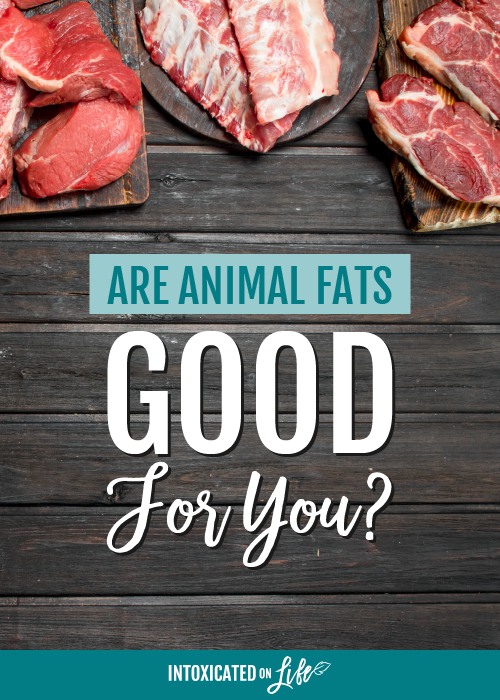
Why have animal fats been demonized?
Long story short: Animal fats got a bad rap because they are high in saturated fats.
And the reason why this was a problem was because of the now-debunked cholesterol hypothesis. The cholesterol hypothesis, in a nutshell, hypothesized that saturated fat and dietary cholesterol gunked up the arteries and caused plaque to build up in your blood vessels.
There are numerous pieces of research we could go over to show that saturated fat is not a villain, but I will only touch on some of the most convincing and largest studies.
5 Major Studies in Defense of Animal Fats
1. Nurses Health Study
One of the longest running and largest health studies ever done is called the Nurses Health Study. This study followed more than 80,000 nurses for twenty years.1
Results:
- There is no correlation whatsoever between consumption of saturated fat and risk of heart disease.
- When individuals eat lots of starchy or sugary foods it doubles the risk of heart disease.
2. The 347,747-Subject Meta-Analysis
Two researchers from Harvard School of Public Health performed a meta-analysis (which is when researchers analyze a number of studies that have been completed on the same subject). In this instance, 21 studies including over 347,000 subjects were reviewed to determine what association there was between saturated fat consumption and cardiovascular disease.2
Results:
- There was no correlation between saturated fat consumption and heart disease.
- When saturated fats are replaced with carbohydrates, there is an increase in blood triglycerides and a decrease in HDL (“good”) cholesterol.
3. 2013 Meta-Analysis of 458 Men
A 2013 paper analyzed data from a study including 458 men to determine if the common medical recommendation of replacing dietary saturated fat with polyunsaturated fats was actually effective in decreasing risk of heart disease.3
Replacement of saturated fat for polyunsaturated fats resulted in:
- Higher death rates from coronary heart disease.
- Higher death rates from cardiovascular disease.
- Higher death rates from all causes.
Yikes.
4. Animal Fats & Life Expectancy
How does the type of fat you eat impact life expectancy? An older study, though very poignant and relevant, was published in the British Medical Journal in 1965 addressing just this question. This study followed patients who had already had a heart attack and were instructed to consume 1 of 3 different fats: polyunsaturated corn oil, monounsaturated olive oil, and saturated animal fats.4
Results:
- Corn Oil Group: 30% had lower cholesterol, but only 52% survival after 2 years.
- Olive Oil Group: 57% survival after 2 years.
- Animal Fat Group: 75% survival after 2 years.
5. Animal Fats Impact on Lp(a)
You may have never heard of lipoprotein (a) levels—Lp(a) for short—but high Lp(a) levels are one of the primary causes of heart disease. Lowering Lp(a) levels is extremely important in prevention of heart disease. There are no drugs that can do this. There is only a dietary approach.5
The best way to decrease Lp(a) levels (whereby decreasing risk of heart disease):
- Eating saturated fats and Omega-3 fatty acids.
- Eliminate wheat and cornstarch.
Animal Fats Are Not the Enemy
Saturated animal fats are not the enemy. It can be hard to understand after years and years of being told they are.
Beyond the research, I can say from personal experience that when I switched from a low-fat diet to a diet very high in healthy animal fats over time, I began to feel much better. Not only do I feel better on a high-fat diet, but I lose excess body fat.
The enemy of your arterial walls is inflammation. If you want to decrease inflammation dietary changes you can make are cutting the following inflammatory foods: sugar, grains, and most vegetable oils.
What About Cholesterol?
If you’re feeling a bit confused about the role of fat and cholesterol in heart disease. I’d urge you to check out my series on cholesterol. I try to distill a number of very complicated and important topics into easy to understand language.
- Cholesterol Hypothesis: Why what you thought you knew about cholesterol and heart disease might not be true
- Why You Need Cholesterol and the Risks of Low Cholesterol
- What is Cholesterol and Where Does it Come From?
- When Good Cholesterol Does Bad Things
Sources:
- A prospective study of dietary glycemic load, carbohydrate intake, and risk of coronary heart disease in US women
- Meta-analysis of prospective cohort studies evaluating the association of saturated fat with cardiovascular disease
- Use of dietary linoleic acid for secondary prevention of coronary heart disease and death: evaluation of recovered data from the Sydney Diet Heart Study and updated meta-analysis
- British Medical Journal 1965 1:1531-33
- Plasma lipoprotein (a) levels in men and women consuming diets enriched in saturated, cis-, or trans-monounsaturated fatty acids.

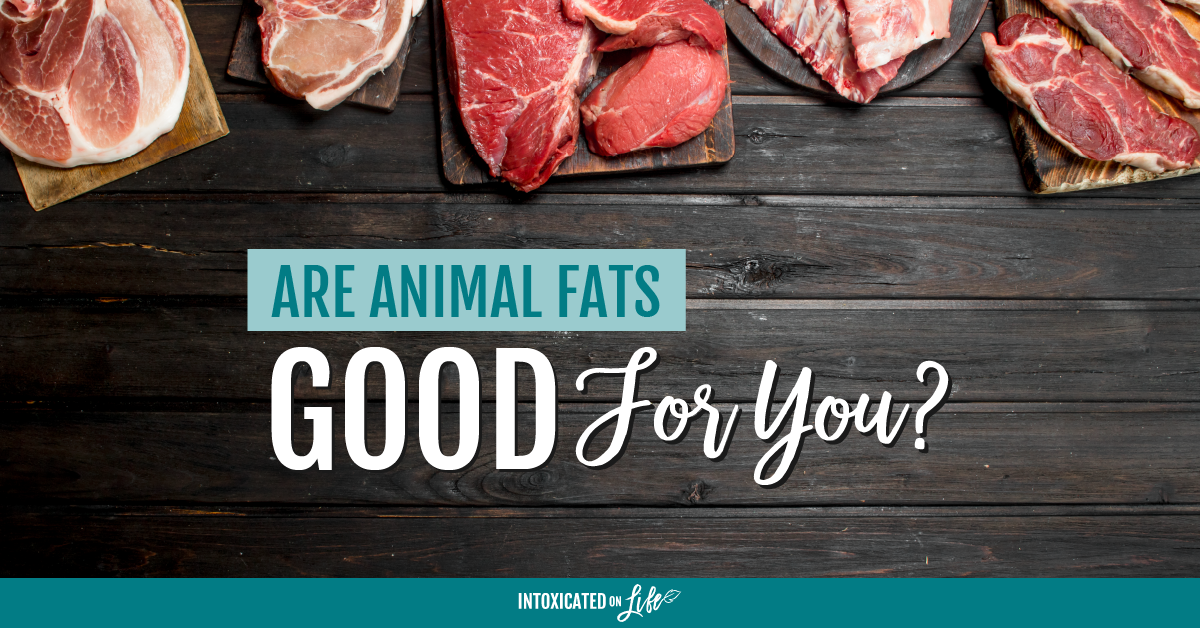
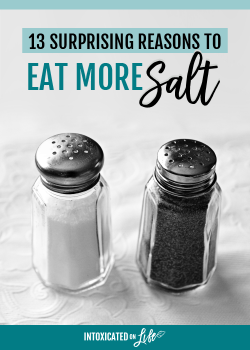
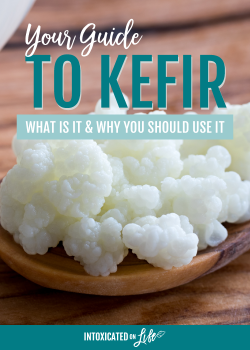
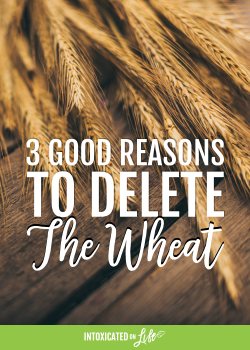
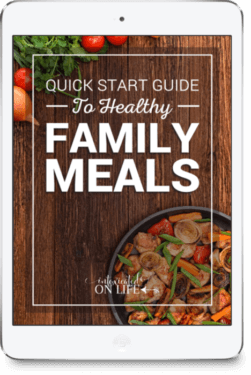
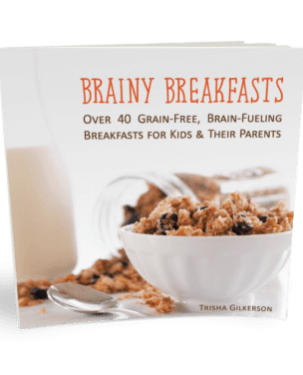

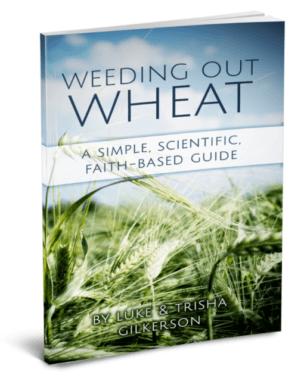
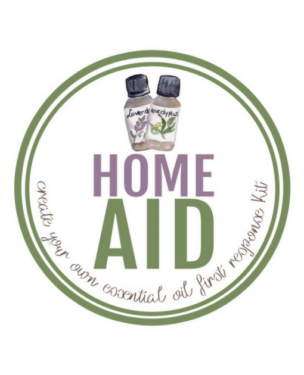

Great post! It is nice to see people are finally seeing the truth about healthful fats and PUFAs.
Thanks Rowan! Hoping some of the research I’ve done can benefit others who may not understand the role these natural fats play in living a healthy life.
Bacon is my favorite source of animal fat. 😉
Generally, I don’t avoid animal fats for health reasons, we eat lean meats because I don’t like veins of fat, tastewise. The only fats I truly avoid are man made fats like margarine and oils like canola. Ick.
I think bacon is my favorite source of animal fat too 🙂 Yum!
I used all kinds of oils on my daughter who has chronic IBS. I used the “better for you butters” like Earth Balance butter for her food only to find out that her diarrhea worsened. One day I used bacon fat to cook her egg in and I’ll admit I was nervous considering all the info out there about
animal fats causing inflammation. And to my my surprsie she does very well with bacon fat. Interesting that our doctors dont know these things!!!
Interesting information. I appreciate the links. Thanks!
You’re very welcome. More info coming next week on this topic!
Great post, but can you please cite the sources? I know I could probably dig them out of the internet, but citing sources is good practice. Since the original papers probably aren’t available to lay people without expensive subscriptions, a source that gives a more detailed explanation of each paper would be useful to your readers, while a citation of the original study would make it more helpful for handing to doctors for a “why I won’t take statins” discussion.
Hi Elizabeth at the end of the post I have a link that will take you to a page with my sources. You can find the list there. Actually, many of these Journal articles are available in their entirety online for free! You’ll see that most of my sources for this post are.
I hope that is helpful. Let me know if there is anything else I can direct you to or help you with. Have a great day!
thank you for this article. It just reinforced something I discovered this week when I noticed that my blalance was suddenly better when putting on my long pants standing up. I wondered what was different. It was eating concentrated chicken and/or beef broth, not just broth diluted in soup, I made from bones from a local farm which has free range animals for breakfast. I had had these broths for breakfast for only three days before I noticed the balance improvement.